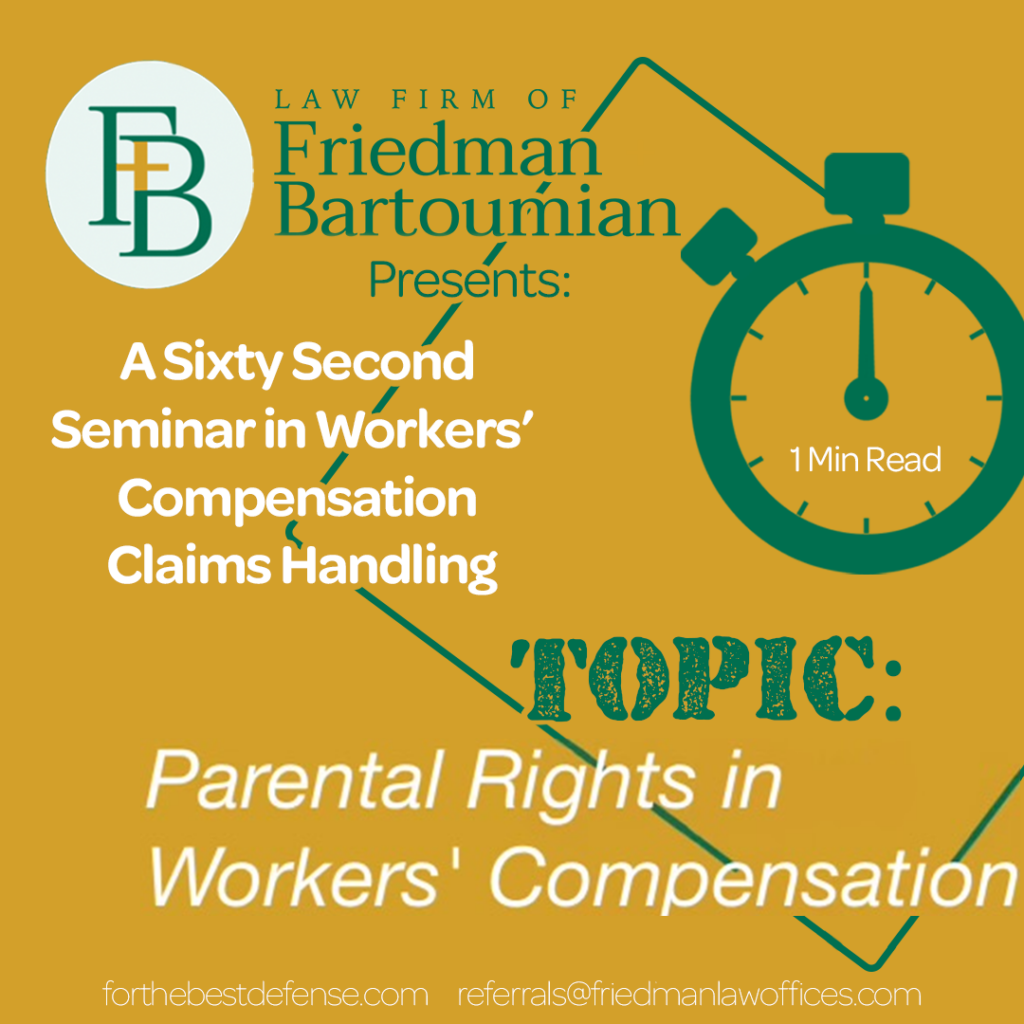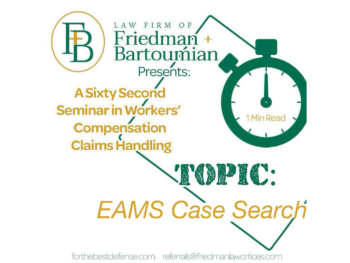
Today we will discuss a topic that we believe has never been presented to claims professionals anywhere in this state. It’s called “Parental Rights in Workers’ Compensation.” Allow us to begin by asking two questions.
- Can you imagine a situation where a judge awards workers’ compensation death benefits to a minor child even though the child’s biological parents are very much alive and both present in the courtroom?
- In yet another fatality claim can you imagine a judge denying death benefits to a minor child after the biological father was killed in a compensable industrial accident?
As strange as it may seem both scenarios are possible. Let’s begin our analysis by examining the first question where the biological parents are alive, yet their minor child is awarded death benefits. In 2013, Senate Bill 274 (Sen. Mark Leno, D-San Francisco) was enacted, effective 1/1/2014, adding Section 4052.5 to the Family Code, to allow a child to legally have more than two parents. This situation would most likely occur after a wife leaves an abusive husband to go live with her parents. She would also take their child with her. If the mother should later become seriously ill or hospitalized, the abusive father may show up demanding physical custody of the child. The grandparents would be in shock and by law, must turn over their loving grandchild to an abusive father, even if the child does not wish to leave. To prevent such a travesty from occurring, Family Code Section 4052.5 was enacted allowing one or both grandparents to petition the court to be declared an additional parent. If the grandfather should be named an additional parent and afterwards die in an industrial accident, the child would be entitled to death benefits pursuant to LC § 3501(a), even though both biological parents are still living. LC § 3501(a) provides a conclusive presumption that a minor child is a full dependent of a deceased parent, but there is no limitation under work comp law on how many parents a child may have. Here we have a situation where both natural parents are alive and yet the child would be entitled to collects death benefits because a third parent passed away in an industrial accident.
As for our second example, where the biological father of a minor child is killed in a compensable industrial accident but the child is denied death benefits, we must examine Family Code Section 7611. This code states that when the child’s mother is married and residing with her husband at time of birth, the husband is conclusively presumed to be the child’s father (providing he is not sterile or impotent), even though he may not be the biological parent. In other words, the mother got pregnant from an affair she was having while married. If the biological father should die in an industrial accident the child is not entitled to death benefits because in this situation the law does not recognize the deceased father as the legal parent. In addition, FC § 7611 assigns a conclusive presumption of paternity to the husband, meaning that the issue is not subject to rebuttal.
It’s hard enough for claims professionals to keep track of the ever-changing workers’ compensation laws without also being asked to study Family Law as well. Thankfully, your partners here at Friedman + Bartoumian are here to aid you!


 When to Pay PDAs: A 60-Second Seminar in Workers’ Compensation Claims Handling
When to Pay PDAs: A 60-Second Seminar in Workers’ Compensation Claims Handling
Leave a Reply